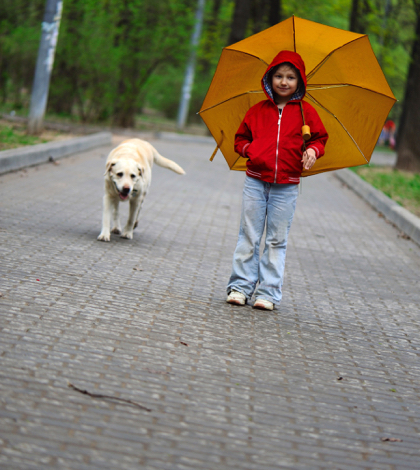As we head into a strong El Nino season, pet owners are being warned to exude caution to protect their animals and their homes. Here’s how you should prepare:
Cats and Dogs
Make sure you have one week worth of food per animal. Store food in properly sealed containers. Food that isn’t airtight can spoil and become moldy.
By law, a pet owner is required to provide their animal with shelter from extreme weather. Owners who fail to provide shelter can face felony charges and a fine of up to $20,000 or imprisonment.
If you have an outdoor dog, make sure he or she has pillows and blankets inside of their doghouse.
Keep extra leashes and toys in your car, in case El Nino forces you to evacuate.
Have each of your pets microchipped. If they get out during an emergency, it is easier to track them down.
Small Animals
Because small animals, like hamsters and guinea pigs require special bedding, it’s important to make sure a week’s worth is stored in case of evacuation. It’s also a good idea to have an aquarium tank on hand, should an evacuation become a reality. An aquarium is more secure than a cage, keeps the animal from escaping and the animal’s bedding dry.
Farm Animals
Animals who are left outdoors are the most vulnerable during extreme weather. Because El Nino will produce heavy rainfall, it is vital for horse owners to monitor water levels in stalls and pastures.
A muddy area means a horse can slip and fall. Excessive exposure to rain and mud makes the horse prone to thrush, a common bacterial infection that impacts the hooves.
Rain rot is another common disease found in outdoor animals, like horses, cows and sheep. The disease can cause painful scabs and sores. The best preventive measure is to keep the horse in a well-ventilated area that is dry.
 California Water News Daily Your Source For Water News in California
California Water News Daily Your Source For Water News in California


